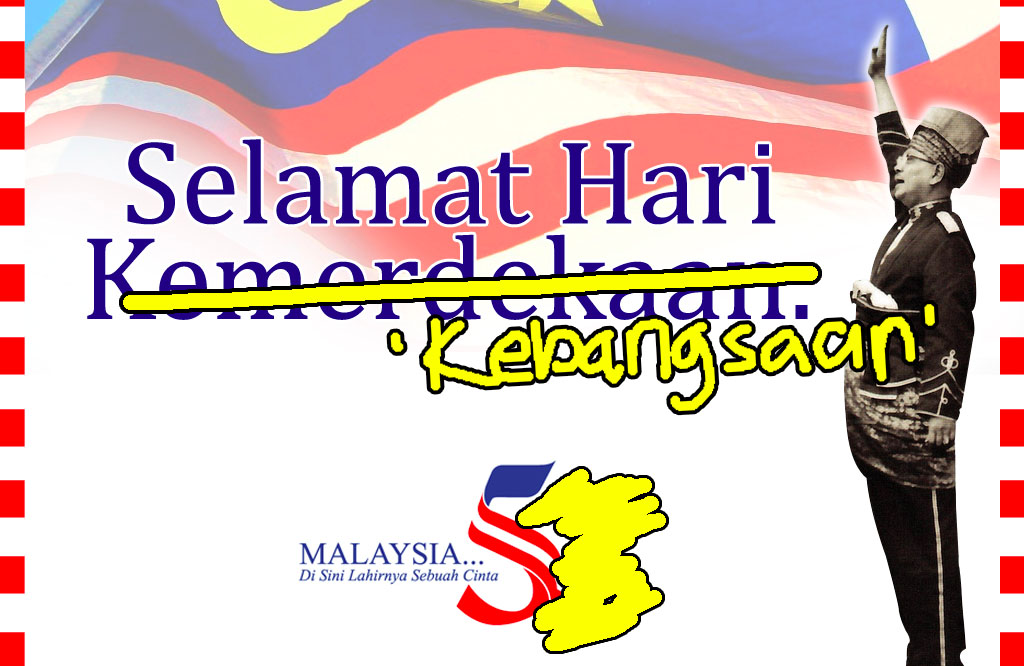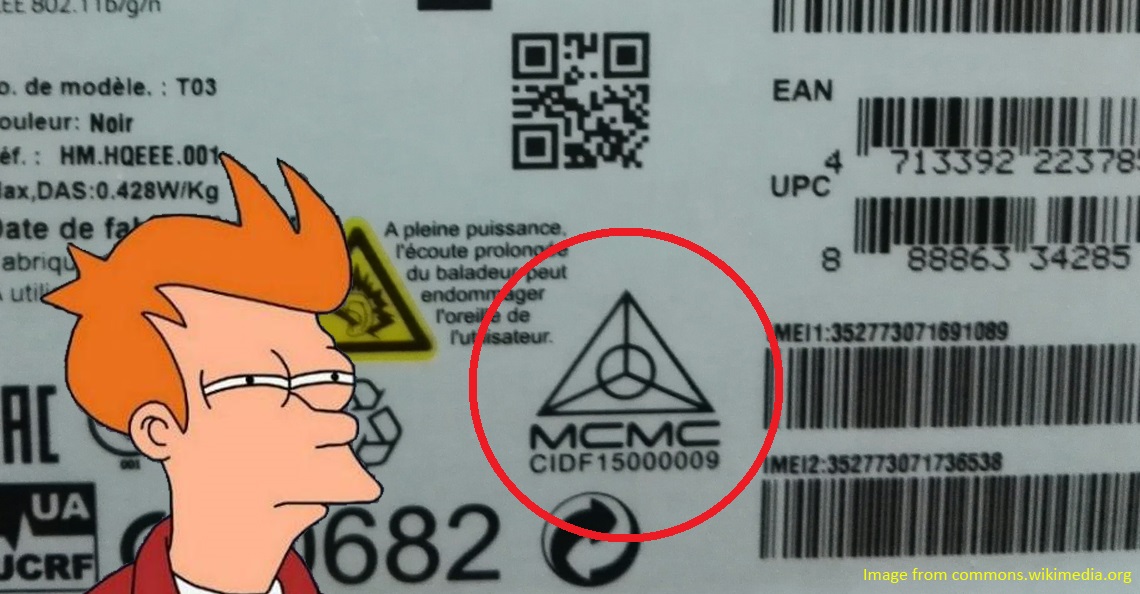Do you like to rant on social media? This new law will make you think twice
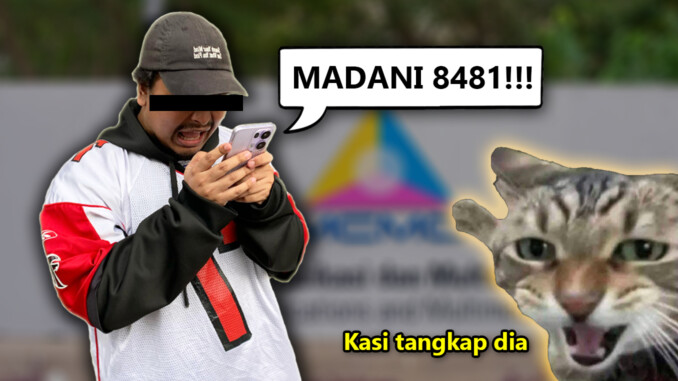
- 92Shares
- Facebook90
- Twitter1
- WhatsApp1
As with any other internet user, you’ve probably clicked a sketchy link, closed a dodgy pop-up or stumbled upon a comment so toxic it could melt steel beams. Yes, the internet is a lawless jungle and yes, online safety matters. That’s exactly why the government introduced the Online Safety Bill. To tackle real threats like online harassment, exploitation and harmful content.
Buuuut if there’s one thing Malaysia is known for, it’s our very delicate relationship with free speech. Over the years we’ve had all sorts of laws *cough Sedition Act, Peaceful Assembly Act cough* that were enacted in the name of maintaining peace but often end up silencing government critics. So could “Online Safety Bill” really just be a formal way to say “Shut up and stop making trouble because now we actually have the tools to bully you“?
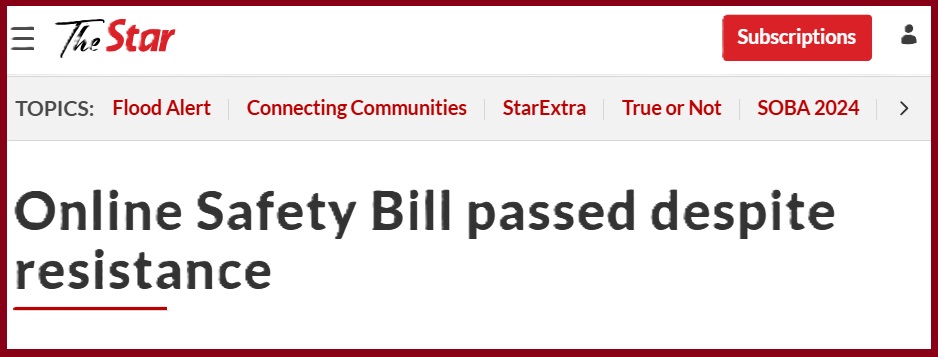
Chup. Is that a bit too dramatic? Maybe. The bill itself is very much needed, but if you missed the backlash when it passed, don’t worry. We’ve got the TLDR on what’s happening and why everyone’s talking about it.
The bill aims to keep people from getting lost/scammed in the internet’s dark alleyways

On a fine Wednesday on December 11th 2024, you were probably minding your own business while the Dewan Rakyat passed the Online Safety Bill. Never mind that more MPs were missing from the session than those who actually voted for it but pfft, details.
The point is, the bill aims to protect Malaysians from online harm, particularly in the age of deepfakes, scams, cyberbullying, and AI-generated nonsense. And this is particularly geared towards kids and other vulnerable groups like gullible boomers.
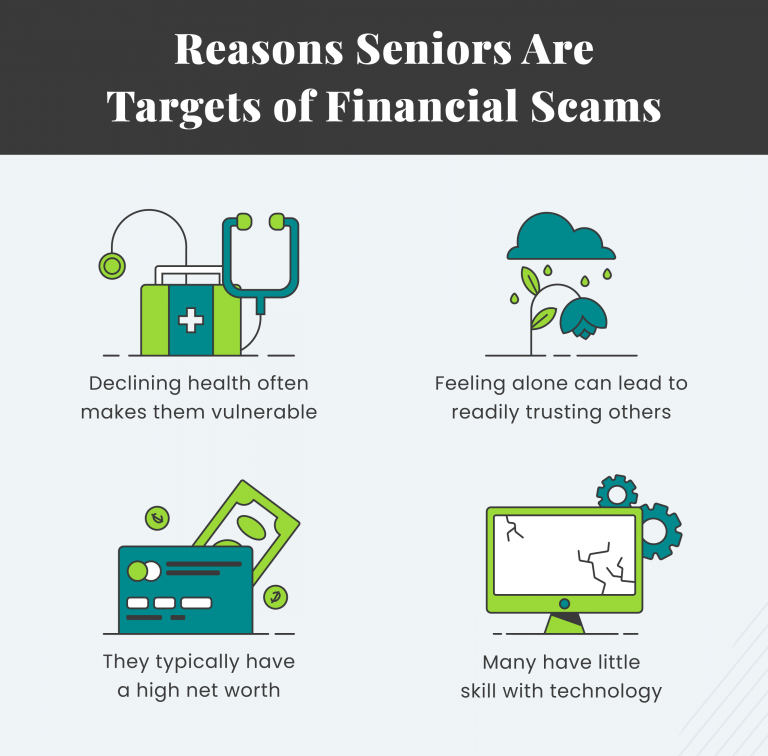
Here are some of the key points:
- Big platforms (Facebook, TikTok, YouTube, X, etc.) must apply for a license to operate.
- Platforms must actively monitor and remove harmful content (or risk a fine).
- MCMC gets a whole new toolbox of powers to enforce safety regulations.
- The bill applies even to companies outside Malaysia if their services affect users in the country.
So far sounds okay, right? Less scam ads, fewer groomers lurking in comment sections and a crackdown on actual online harm. But um… what kind of online harm do they mean? Glad you asked, because…
Even your spicy roasts can kena as ‘online harm’ now
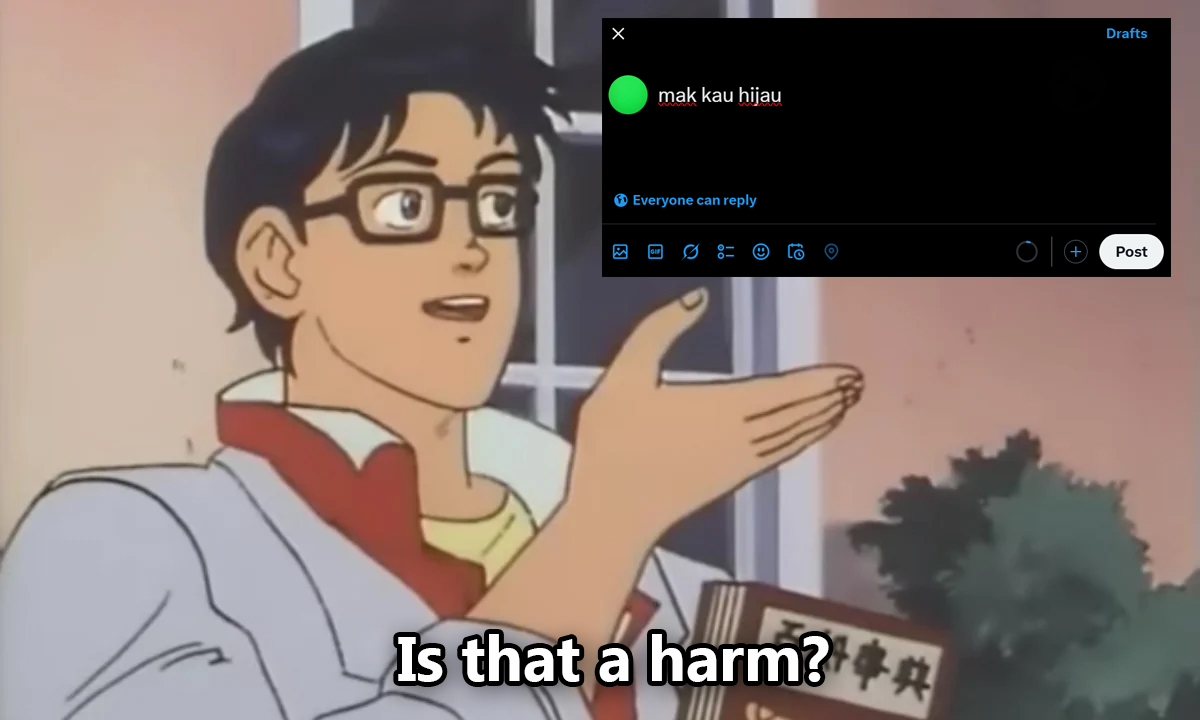
Bear with us here because we’re bringing in the exact wording from the Online Safety Bill so you can see how the government spells out “harmful content” in all its official glory. To begin with, we have the clear-cut ones that nobody in their right mind is going to argue with:
- Child sexual abuse material as provided for under section 4 of the Sexual Offences against Children Act 2017 [Act 792].
- Financial fraud.
- Content that may incite violence or terrorism.
- Content that may induce a child to cause harm to himself.
- Content that promotes the use or sale of dangerous drugs.
And then we get to the vaguer, more stretchy bits of “indecent content”, “content that may cause distress”, and the real kicker, “content that may promote feelings of ill-will”:
- Obscene content including content that may give rise to a feeling of disgust due to lewd portrayal which may offend a person’s manner on decency and modesty.
- Indecent content including content which is profane in nature, improper and against generally accepted behavior or culture.
- Content that may cause harassment, distress, fear or alarm by way of threatening, abusive or insulting words or communication or act.
- Content that may promote feelings of ill-will or hostility amongst the public at large or may disturb public tranquility.
Like who gets to decide what’s distressing? What counts as ill-will? If an artist uses satire to call out corruption, does that suddenly make their work indecent, distressing and ill-willed?

And even with their stringent categories, there were hints that the Ministry of Communications might still block other content.
“Any content that doesn’t sit well with the minister or MCMC could still be liable, even if it doesn’t fall within the eight categories,” — Anonymous source via MalaysiaNow
And if that’s not distressing and ill-willed enough, there’s another glaring problem in this bill that is…
MCMC’s blanket authority to dig their nose into your business as they see fit
The write up by Article19 does a thorough job of explaining but to sum it up for those reading this on your strategic toilet break, the government is tightening (read: fisting) their grip on free speech and there’s basically no one keeping them in check.
In a remarkably all encompassing approach, the Malaysian Communications and Multimedia Commission (MCMC) will be in charge of making sure the rules in the bill are followed, while the Ministry of Communications gets to call some (but not all) shots on enforcement. This means the government has near total control from every angle. Investigations will be their call. Punishments will also partly be their call.
The real concern here is if MCMC can order platforms to remove content without clear transparency or independent oversight, what’s stopping it from being abused for political censorship?
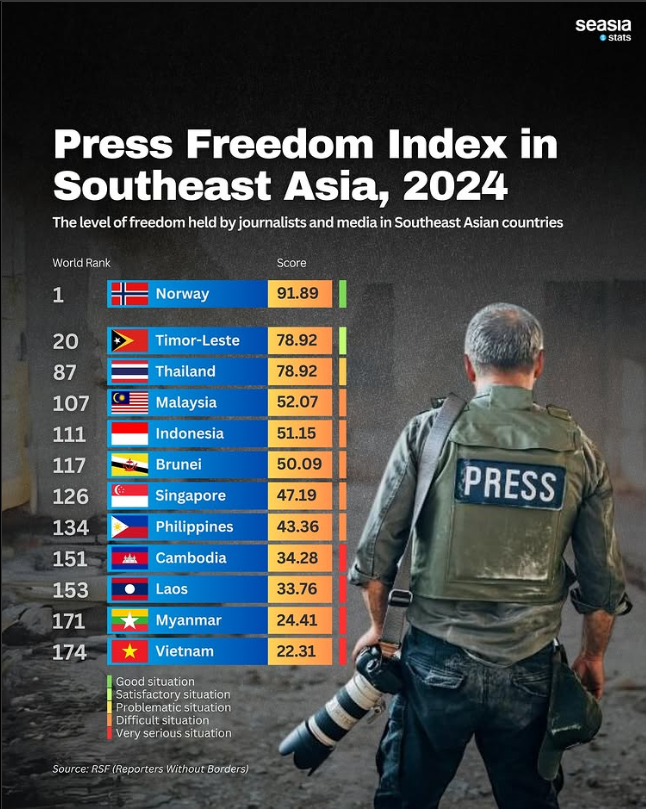
And while you ponder that, sit on this too: the Online Safety Bill lets MCMC officers get their grabby paws on user data whenever they feel it’s “reasonably required.” Sections 60 and 61 give them the power to demand your communication records from service providers, who have no choice but to hand them over. Meaning to say, everything from your edgy memes to that post you restricted to close friends is open to government surveillance.
So with all that said…
What would a good Online Safety Act actually look like?
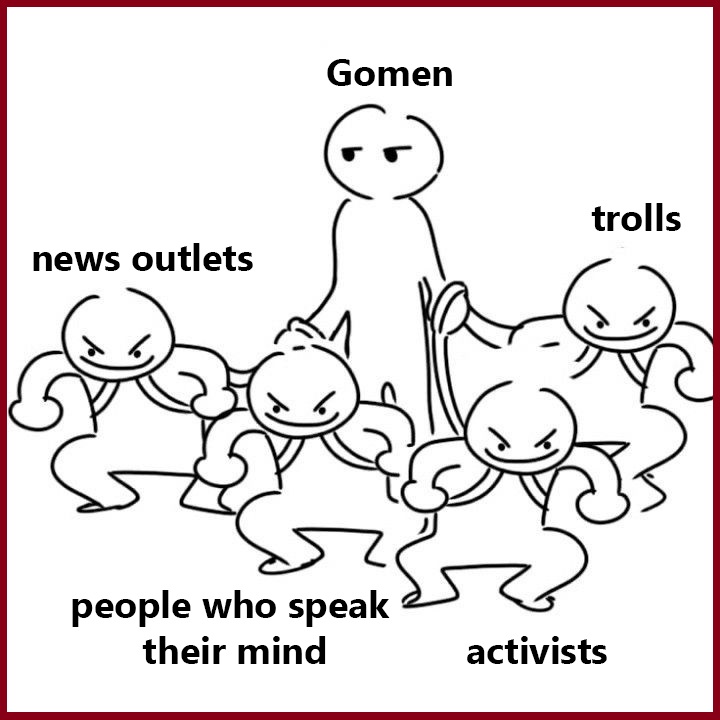
The Online Safety Bill mostly gets it right by tackling major issues like child exploitation in online spaces. It’s just a matter of fine-tuning it so the internet doesn’t turn into a government-controlled kindergarten. And whaddaya know, the critics are in agreement and have pretty much highlighted where exactly our current bill could use more work.
- Stop with the blur sotong terms. The law should properly define harmful content instead of this wishy washy “if someone feels offended, remove it” approach. Terms like “offensive” shouldn’t apply unless there’s real harm. Exceptions should also exist for news, education, research and satire.
- Kids ≠ adults. What’s harmful to a 10-year-old isn’t the same as for an adult. Other countries like Singapore and Australia get this and Malaysia should too. Kids need stricter protections, but babying everyone else is just unhelpful.
- We need due process instead of panic takedowns. A 24-hour takedown rule sounds efficient, but it only encourages knee-jerk censorship. Platforms need time to properly review content because context matters. Instead of rushing to delete everything, the law should go for a “no undue delay” approach, ensuring platforms remove harmful content quickly, but with actual fact-checking.
- MCMC shouldn’t be acting as overlord. One minister or government agency having full control over what stays online sounds like a dystopian Netflix series. If this bill is really about safety and not control, then there needs to be independent oversight. Meaning no single authority should get to press delete without checks and balances.
And the thing is, Malaysia isn’t exactly breaking new ground here.
We can learn from what worked (and didn’t) in other countries’ online safety laws
The UK’s Online Safety Bill, for example, faced criticism for vague definitions that could lead to over-censorship (sound familiar?). The EU’s Digital Services Act focuses on illegal content takedowns and transparency (which uh, Malaysia’s bill kinda forgot).
Australia’s law has strict takedown rules but still protects freedom of expression, while Germany’s NetzDG law sticks to removing illegal content without overreaching into free speech.

Alarmingly though, Malaysia has gone a step further.
Our Online Safety Bill requires platforms with over 8 million users to apply for a license just to operate. Even the UK and EU didn’t do that. The problem here is that if big platforms decide it’s too mafan and bail instead of complying, we could be stuck with a censored, watered-down internet where the rest of the world is vibing to Nicki Minaj’s new MV and all we get is RTM replaying Bangau Oh Bangau.
So at the end of the day…
The balance between safety and freedom is delicate
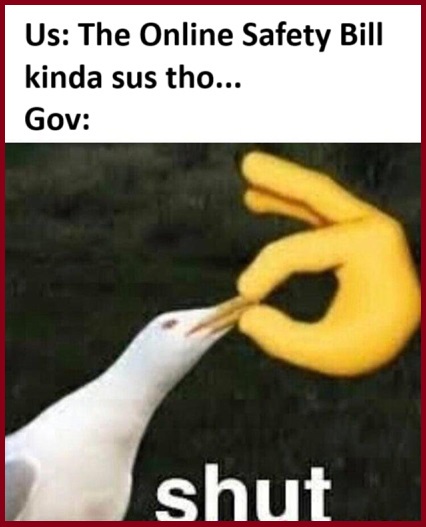
After all, you don’t want to trip and faceplant into censorship. And yet that’s exactly where we might be headed. The Online Safety Bill has already cleared both the Dewan Rakyat and Dewan Negara, with only Royal Assent and a place in the Federal Gazette standing between it and becoming law.
To be fair though, the bill started with the right intentions. But as it stands, there’s still room for improvement. Without amendments down the line, we could end up in a situation where speaking up comes with risks, while staying silent means giving up more control over what we can and cannot say.
It goes without saying that a well-protected internet shouldn’t come at the cost of free expression. Digital rights groups, activists and even politicians are already sounding the alarm, but the reality is that if Malaysians don’t start paying attention now, we’ll only feel the impact when our online freedom has already been packed up and shipped off.
- 92Shares
- Facebook90
- Twitter1
- WhatsApp1

